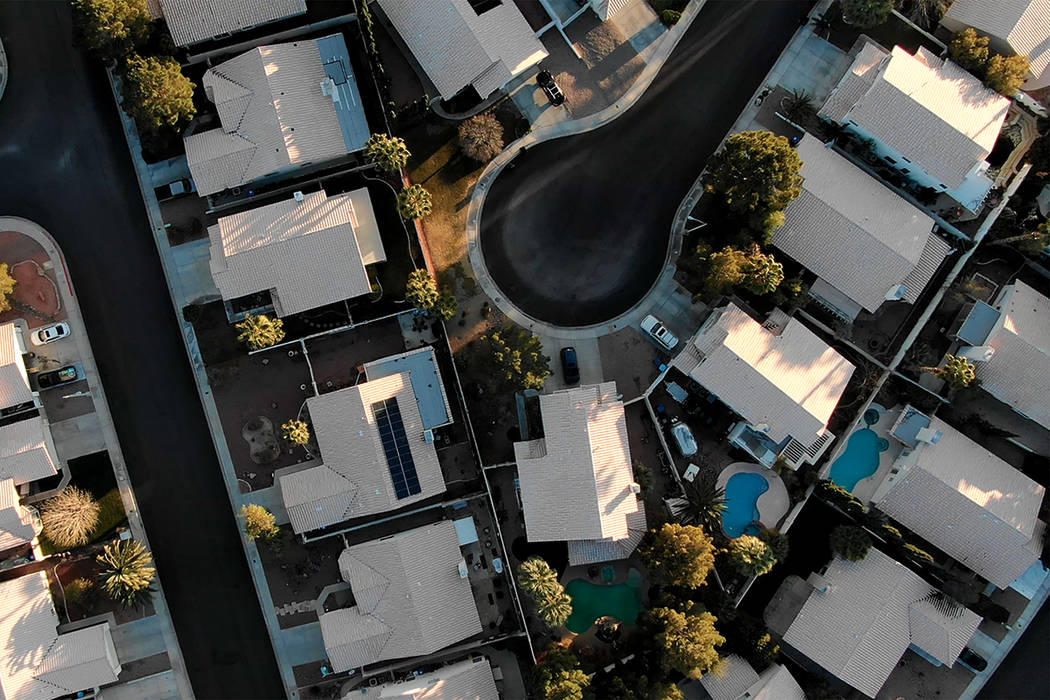Nevada’s new housing-related laws impact builders, tenants

Nevada lawmakers passed several housing-related bills in the recently concluded legislative session, affecting such issues as construction defect claims, affordable housing development and evictions.
Here’s a look at some key new laws.
Construction defects
Four years after Republican lawmakers raised barriers to pursuing lawsuits alleging shoddy construction, the Democratic-controlled Legislature made the process easier.
Assembly Bill 421, which will take effect Oct. 1, lets homeowners report supposed construction defects in “reasonable” detail when submitting a notice to a builder or contractor. The previous law required “specific” detail with “exact” locations.
Among other changes, homeowners also have up to 10 years after the work in question was finished to pursue a claim. The previous law gave them six years.
Backed by attorneys, the measure rolled back provisions of the homebuilder-supported law from 2015, which cracked down on construction defect litigation a decade after Las Vegas’ wild building spree.
Ardea Canepa-Rotoli, a board member at the Nevada Justice Association, a lobbying group for lawyers, said last month that the 2015 law “restrained” homeowners’ rights.
Construction defect litigation is “significantly down” in Nevada, but “it’s not because magically there’s no more defects,” she said.
Lobbyist Nat Hodgson, chief executive of the Southern Nevada Home Builders Association, said Friday the bill’s final version “turned out a lot better” than its initial one. According to Hodgson, the measure was introduced as a “full repeal” of the 2015 law.
Hodgson said the biggest issue is the 10-year window for submitting construction defect claims. He contended the extended deadline will raise builders’ insurance costs.
Affordable housing
Lawmakers gave the affordable housing market a boost with incentives that could help spark more projects for low-income Nevadans.
Senate Bill 103, which will take effect July 1, authorizes local governments to reduce certain fees for affordable housing projects. Senate Bill 448, which will fully kick in Jan. 1, lets the state issue $10 million in transferable tax credits annually for four years to help finance new projects.
According to the National Low Income Housing Coalition, Nevada has a shortage of more than 73,000 affordable and available rental homes for “extremely low income” tenants.
In Nevada, most money for affordable housing projects comes from the federal government, and SB448 creates the first new source of state money for such projects since the early 1990s, said Eric Novak, founder of Reno-based Praxis Consulting Group.
Developers build about 1,000 units of affordable housing statewide each year, and state officials estimate the tax credits will increase production by 600 units, said Mike Shohet, chief real estate development officer at Las Vegas-based Nevada HAND, an affordable housing developer.
He said developers would sell the tax credits to investors and use the proceeds to help pay for projects.
Evictions
Starting July 1, Senate Bill 151 will bolster protections for tenants by capping late fees at 5 percent of their regular rent and requiring more time to pass before a landlord can evict them for falling behind on their payments.
The law also gives tenants more time to thwart an impending eviction by paying their landlord up to seven business days after they were served an overdue-rent notice, compared to a maximum of five business days under the previous law.
An eviction notice “requires you to stop everything you’re doing to try to navigate this emergency,” said Bailey Bortolin, policy director with the Nevada Coalition of Legal Service Providers. “This new time frame will make sure the tenant has a weekend in there to figure out what their next step is.”
Landlords will also be required to allow an evicted tenant to retrieve essential belongings, like medication, for five days after they are locked out.
The measure faced heavy opposition from real estate organizations after portions of the dead Senate Bill 256 were amended into it in the final days of the Legislature. Those provisions included the late-fee cap and the five-day window to retrieve belongings.
Nevada Realtors President Keith Lynam said he and his members felt “hoodwinked” to see the SB256 provisions resurface after they had come to an agreement with lawmakers on SB151.
He said in a statement that the new law “will harm tenants and property owners” throughout the state and discourage Nevadans “from renting out their homes.”
Contact Eli Segall at esegall@reviewjournal.com or 702-383-0342. Follow @eli_segall on Twitter. Review-Journal staff writer Michael Scott Davidson contributed to this report.